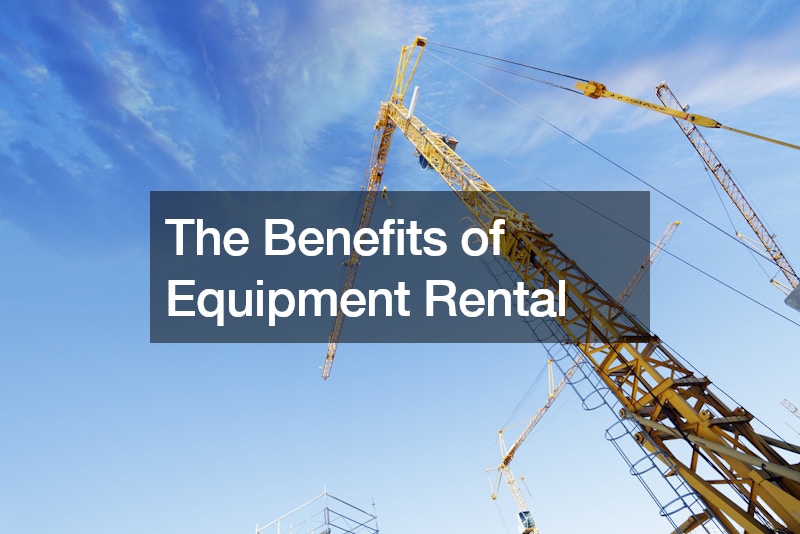Equipment rental, often referred to as plant hire in some countries, provides individuals and companies with a practical way to access various types of machinery, tools, and technology without the need for permanent acquisition. This practice has become increasingly popular across diverse industries, including construction, agriculture, event planning, and filmmaking. The benefits of equipment rental are numerous and can significantly impact operational efficiency and financial management.
1. Cost-Effectiveness:
One of the primary benefits of renting equipment is cost savings. Purchasing heavy machinery or even smaller tools can be prohibitively expensive, especially for short-term projects.
Rental services allow access to the necessary equipment at a fraction of the cost of buying. This is particularly beneficial for small businesses or startups that may not have the capital to invest in a wide array of equipment. Moreover, renting avoids the ongoing costs associated with ownership, such as maintenance, storage, and insurance.
2. Access to the Latest Technology:
Equipment rental companies typically update their fleets regularly with the latest models to remain competitive. This gives renters access to modern equipment with the latest technology, which can be more efficient, faster, and more environmentally friendly than older versions. For industries where technology rapidly evolves, such as construction and film production, having access to the latest equipment can significantly enhance the quality and efficiency of the work.
3. Flexibility and Convenience:
Renting equipment provides operational flexibility. Companies can hire tools and machinery for exactly the duration they are needed, whether it’s for a day, a week, or several months. This flexibility is crucial for project-based industries like construction where the needs can change frequently. Additionally, rental companies often offer delivery and pick-up services, which further simplifies logistics and saves time.
4. Maintenance and Support:
When equipment is rented, the responsibility for maintenance generally falls on the rental company. This means that renters do not have to worry about the upkeep costs or the logistics of repair. Furthermore, most reputable rental companies provide 24/7 support and will replace any machinery that malfunctions, ensuring that project delays are minimized.
5. Risk Management:
Using rental equipment can help mitigate several risks associated with project management. For one, it reduces the financial risk linked to investing in expensive machinery that may only be needed temporarily. It also limits the project risk since rental companies ensure that the equipment is well-maintained and operationally ready. Additionally, for businesses that operate in multiple locations, renting equipment locally can reduce the risks associated with transporting heavy machinery.
6. Enhancing Project Opportunities:
Lastly, having access to a broad range of equipment as needed can enable companies to bid on different types of projects that may require specialized tools or machinery that they do not own. This capability can expand business opportunities and allow companies to explore new markets without hefty initial investments.
Watch the video above to learn more about equipment rentals, including College Station equipment rental!.


